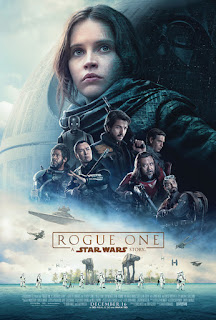La La Land is a movie with a director that clearly loves music (as we saw in the excellent Whiplash) and it is a musical romantic comedy-drama. Already from its definitions, you can guess that the film has multiple sides. Let's try to capture most of them while remaining spoiler-free.
The acting performances are amazing. Emma Stone is absolutely stunning with her expressivity. There are funny situations, both during the songs and the normal acting, that are enhanced by the excellent dynamic between the two main performers. A few scenes have a terrific intensity, they look at each other and take your breath away. J.K. Simmons (in the role of himself again) appears for a short time but delivers his performance as usual.
The acting performances are amazing. Emma Stone is absolutely stunning with her expressivity. There are funny situations, both during the songs and the normal acting, that are enhanced by the excellent dynamic between the two main performers. A few scenes have a terrific intensity, they look at each other and take your breath away. J.K. Simmons (
The musical parts are not forced but very naturally make their appearance in the plot. They are tools to describe a feeling, a dream, a desire, a memory. I particularly appreciated the dance happening between the two main characters, with the LA sunset in the background, symbolizing the newborn romantic tension emerged due to their encounter. The soundtrack is very enjoyable and I will let you know when it stops haunting me.
There is a quite predictable discussion on the beauty of Jazz. Usually, such discussions are very pretentious (you don't like it because you don't understand it) and the essence of it is the same in the film. However, Sebastian doesn't give a lecture on the beauty of Jazz, but rather makes Mia see the music with his point of view, with his passion. This substantial change gives a very romantic tone to one of the most tedious arguments of the Jazz enthusiasts (like myself).
The theme that stroke me harder (but far from being the only one) is how to pursue your own dreams while you have another person with another set of dreams next to you. The mistake displayed on the screen is that the characters make decisions not based on what they want, but rather on what they think their partner is expecting from them. This is eventually creating a tension which will lead to the wrong assumption that their dreams are somehow subjected to a hierarchy (my dream is more important than your). The plot is then developed around this tension, exploring different solutions.
In conclusion, La La Land has a very romantic, bitter-sweet, tone all over the movie, but with a very persistent note of realism. The result is a well-told story to which everyone can relate to and, therefore, reaches its goal: make you feel a wide spectrum of emotions and think about your own life.
There is a quite predictable discussion on the beauty of Jazz. Usually, such discussions are very pretentious (you don't like it because you don't understand it) and the essence of it is the same in the film. However, Sebastian doesn't give a lecture on the beauty of Jazz, but rather makes Mia see the music with his point of view, with his passion. This substantial change gives a very romantic tone to one of the most tedious arguments of the Jazz enthusiasts (like myself).
The theme that stroke me harder (but far from being the only one) is how to pursue your own dreams while you have another person with another set of dreams next to you. The mistake displayed on the screen is that the characters make decisions not based on what they want, but rather on what they think their partner is expecting from them. This is eventually creating a tension which will lead to the wrong assumption that their dreams are somehow subjected to a hierarchy (my dream is more important than your). The plot is then developed around this tension, exploring different solutions.
In conclusion, La La Land has a very romantic, bitter-sweet, tone all over the movie, but with a very persistent note of realism. The result is a well-told story to which everyone can relate to and, therefore, reaches its goal: make you feel a wide spectrum of emotions and think about your own life.
















